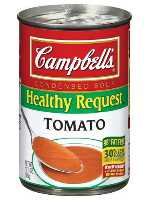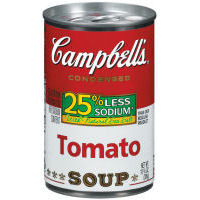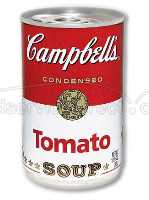MARK TARSES TENANT NEWSLETTER
April, 2010
WHY WON'T LANDLORDS ACCEPT E-MAIL NOTICES?
Almost all leases state that notices, like move-out notices, must be in writing. At this time of year, I always get a few inquiries from Cal students who want to know if they can just send me e-mails instead of actual letters saying that they are moving out at the end of the school year. I have to tell them: 'Sorry, but that has to be in writing.' I can't rent an apartment or even offer it for rent until I have received written notice from the current tenants that they are leaving. A move-out notice must contain the address of the property, the move-out date, and the signatures of all the tenants on the lease or in possession. It must be delivered to me 30 days before the move-out. The move-out date must be specific and definite. Sometimes I get move-out notices that say things like: "I will be leaving by May 31 unless I can't find another apartment by then." This is not a valid notice because it is not clear that the tenant is leaving.
LAS VEGAS MELTDOWN.
If you think the economy here is in bad shape, you ought to see Las Vegas. I was in Las Vegas in March. I met a guy there who owns a 3 bedroom house in southeast Las Vegas. He bought his house in 2007 for $610,000. His mortgage has a balance of $450,000. Today, the house has an appraised value of $120,000. He says he'll stay in his house until the bank kicks him out. Right now, 2/3 of houses in Las Vegas with mortgages are 'under water', meaning that the mortgage exceeds the property's market value. You can buy 2 bedroom condominiums in Las Vegas in good condition for under $40,000 and 1 bedroom condos for under $25,000. Some people are buying condominiums in Las Vegas for use as cheap places to stay on their occasional trips to the city. Locals are buying condominiums for use as storage sheds.
Population Explosion. The population of Las Vegas in 1900 was just 25 people. By 1940, Las Vegas had grown to a town of 8,000 people. In 1970, the population was 100,000. Today, the Las Vegas metropolitan area has almost 2 million people, but the economy of this huge city still largely depends on just one industry, casino resort hotels. No major corporations are headquartered in Las Vegas, there is little manufacturing, no agriculture, no port, and no water. For a long time, I have wondered what was going to happen to Las Vegas in a serious recession, but there hadn't been a serious recession since 1973.
1973. 1973 was a very bad year for the U.S. economy. The bills for the Vietnam war were piling up, and inflation was taking off. The Watergate scandal had undermined the Nixon administration. During the 1973 Arab-Israeli 'Yom Kippur War', Saudi Arabia launched 'the oil weapon.' They embargoed the sale of oil to the West, causing economic chaos in the U.S. and around the world. Then OPEC raised the world price of oil from $4 to $40 a barrel. The Dow Jones Industrial Average dropped 45% in 1973-74, and it took 9 years to recover.
Today, 15 of the 20 largest hotels in the world are in Las Vegas. There are over 140,000 hotel rooms in the city. They have been trying to keep those rooms full by cutting prices, but some big Las Vegas hotels are now down to $20 a night. How much lower can they go? To make things worse, there are a lot of buildings under construction on The Strip, including the gigantic City Center, which will soon add to the glut of excess hotel rooms, condos, and stores; so things will likely get worse. I've read that the real estate market in Miami is much worse than Las Vegas, but I don't see how that's possible.
WHY DO SO MANY PEOPLE DRINK GINGER ALE ON AIRPLANES?
Ginger ale is one of the most popular beverages on airplanes, but why? Caffeinated beverages like Coca Cola can make you jittery and can contribute to motion sickness; however, a number of medical studies have shown ginger to be effective in both preventing and alleviating motion sickness. Chinese sailors have consumed ginger for centuries as a cure for seasickness. Many cruise ship doctors give ginger candy to seasick passengers.
WHY IS THERE JUST AS MUCH SODIUM IN 'LOW SODIUM' SOUP AS THE REGULAR KIND?



Campbell's Tomato Soup is the #1 selling brand of canned soup in the United States. According to the nutritional label on the back of the can, a 1/2 cup serving contains 480 mg of sodium, but a 1/2 cup serving of Campbell's '25% less sodium' Tomato Soup also contains 480 mg of sodium. They contain the same ingredients and the same amount of sodium, but there's a big difference in the price. A can of regular Campbell's Tomato Soup at Safeway here in Berkeley costs 99 cents a can, but a can of Campbell's '25% less sodium' Tomato Soup costs $1.49.
A lot of companies make fake health food. Why? Health food is very profitable. Food processors know that people will pay a lot more for food that they believe will improve their health or prolong their lives. Campbell's Chicken & Rice Soup contains 70 calories a serving, and Campbell's Light Chicken & Rice Soup, which costs 50% more, also contains 70 calories a serving. Campbells' Healthy Request 'low fat' Tomato Soup contains 1.5 grams of fat per serving, but regular Campbell's Tomato Soup contains no fat at all. Campbell's Healthy Request Tomato Soup costs 50% more than the regular tomato soup.
WHAT IS A BIWEEKLY PUBLICATION?
Biweekly has 2 very different, but equally valid, definitions. Biweekly can mean semiweekly, or twice a week, or 104 times a year. Biweekly can also mean fortnightly, or once every other week, or 26 times a year.
Twice a week. Last month, the Berkeley Daily Planet ceased publication. The Planet described itself as 'Berkeley's biweekly newspaper.' It was published twice a week. Personally, I was not sorry to see the Planet go. Their editorial policy changed about 5 years ago when the owner decided to publish anti-Semitic letters to the editor. Some of these letters were really nasty. This was an unwise business decision in a city with a large Jewish population. There are between 4,000 and 5,000 Jewish students currently attending U.C. Berkeley. Predictably, the Planet lost advertisers, and like most other free newspapers, the Planet got 100% of its income from advertising. The owner of the Planet made a number of other bad business decisions as well, but I digress.
Every other week. Most periodicals use the other definition of biweekly. For example, Rolling Stone calls itself a 'biweekly magazine', by which they mean they publish every other week, or 26 issues a year.
Twice a month. Some publications, including U.S. News & World Report, define biweekly as twice a month, or 24 times a year, but this really should be called semimonthly, not biweekly. I avoid using the word 'bimonthly', because this word is also ambiguous. Bimonthly can mean either twice a month (24 times a year) or once every other month (6 times a year.)
More confusion. Some biweekly publications don't tell you what their definition is. "The Graduate Source" newsletter is published by U.C. Berkeley. On the cover page, it says "The Graduate Assembly sends out bi-weekly updates to all graduate students"; however, it doesn't define 'bi-weekly', so you just have to guess. Some extended stay and residence hotels advertise 'biweekly rates', but that can mean that the rent is due either 24, 26, or 104 times a year. On Bank of America's web site site, it says; 'Some of our loans offer a bi-weekly payment option,' but what does that mean? Confusing, isn't it?
OUR 9.75% SALES TAX.
Currently, Chicago has the highest sales tax rate of any big city in the U.S. at 10.25%; however, Illinois recently changed their sales tax law. As a result, Chicago's sales tax will soon drop to 9.75%. The sales tax rate here in Alameda County is also 9.75%, so Chicago's sales tax rate will soon be the same as ours. High sales tax is a huge problem for retailers. It is hard for stores in places with high sales tax to compete with Amazon and other internet retailers on expensive, easy-to-ship items like cameras, laptop computers, and textbooks. Amazon doesn't charge sales tax on merchandise shipped to California, and most items are shipped free.
There used to be a lot of textbook stores around the U.C. Berkeley campus, but internet retailing wiped out nearly all of them. Most people don't realize how very expensive textbooks are. Textbooks on technical subjects typically cost $150 to $200. For example, the required textbook at U.C. Berkeley for Economics 101, an introductory course, is "Microeconomic Theory" by Nicholson. Price: $190 new or $142 used plus 9.75% sales tax at the campus bookstore. Amazon charges $134 new with free shipping and no sales tax. How can campus bookstores compete with that?
Taxing Internet Sales? Congress has considered legislation requiring internet retailers to collect sales tax on all shipments within the U.S., but its hard to imagine how internet retailers could comply with such a law. There are hundreds of sales tax jurisdictions in the U.S., each with its own rules. Plus, every state has a labyrinth of regulations determining which items are taxable and which are exempt. Consider a bag of cough drops purchased here in California. If the cough drops require a prescription, they are exempt from sales tax. If the cough drops do not require a prescription but are medicated, then they are considered non-prescription drugs and taxable. If the cough drops make no medicinal claim, then they are considered candy, which is exempt from sales tax. And that's just cough drops.
'I NEED A NEW STOVE.'
Some time go, I received this letter from a tenant in Oakland:
"Dear Mr. Tarses:
I need a new stove. There is something wrong with the stove in my apartment. Everything I cook on my stove tastes terrible. I've tried cooking things different ways, but nothing works. I cooked a steak in the broiler and it burned and set off the smoke detector. I know that last year you bought Carol a new stove. (Carol lived in the apartment next door.) Her stove is a lot better than mine. I had dinner at Carol's apartment last month. She made chicken and dumplings, and it was delicious. I made chicken and dumplings last night on my stove, and it was awful. It smelled bad, and it was so hard that I bent a spoon trying to get it out of the pot. Rusty (his dog) wouldn't eat it. I put some of it in his food bowl, and he just barked at it. He is in the kitchen right now barking at that bowl of chicken and dumplings. I think that means something. I used Carol's recipe exactly, so the problem has to be the stove. I want a new stove just like Carol's."I thought about suggesting to him that he take cooking lessons, but he said that he was a 'gourmet cook,' and I didn't want to start an argument, so I didn't say anything about cooking lessons. I did not buy him a new stove, but I did buy Rusty a box of dog biscuits. The guy moved to an apartment house downtown that advertises that every unit has a 'gourmet kitchen.' I hope he's happy there and that his chicken and dumplings is now delicious. A lot of landlords advertise that they have 'gourmet kitchens', but that can mean almost anything. It usually just means that the rent is high.
For more advice on how not to cook a chicken dinner, go to: Canned Chicken.
Mark Tarses